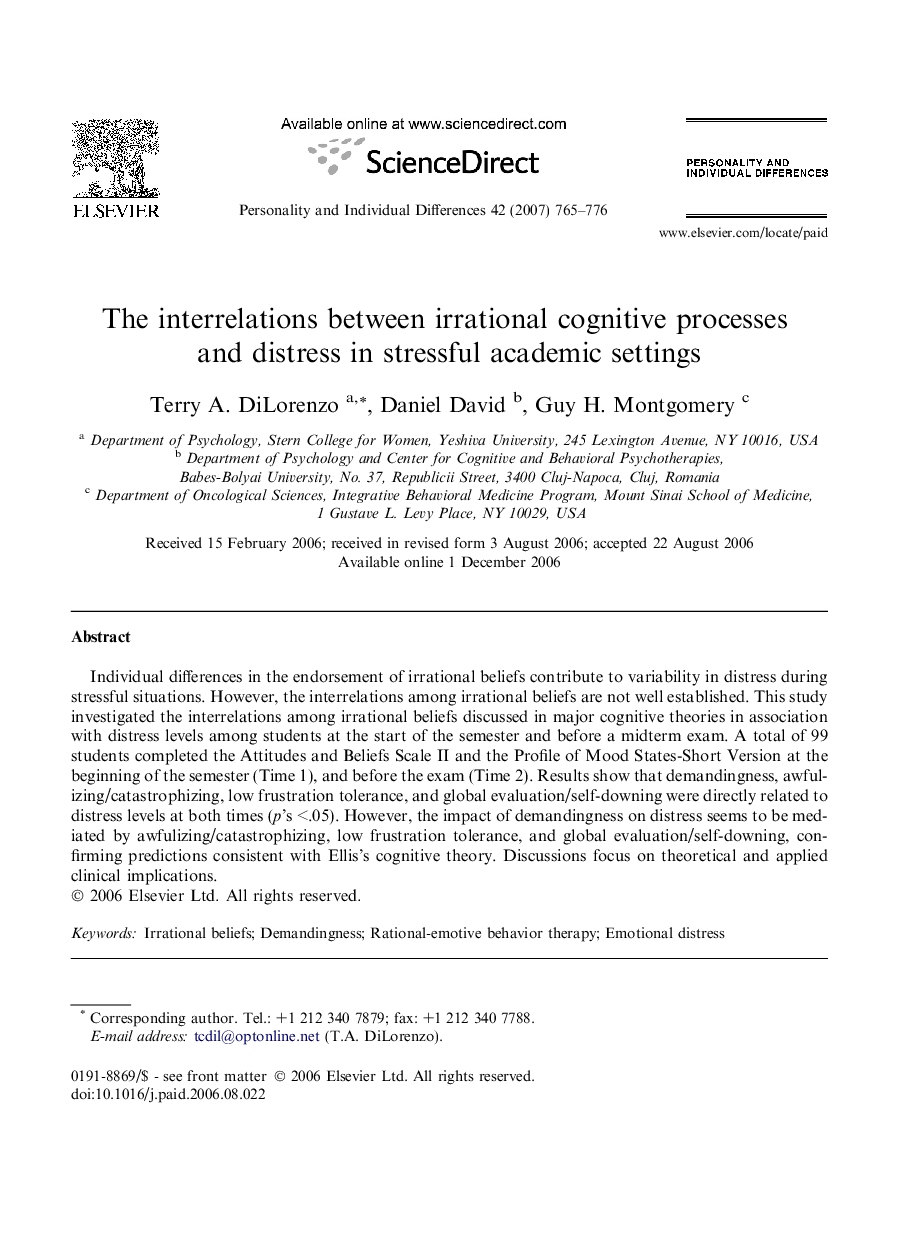| Article ID | Journal | Published Year | Pages | File Type |
|---|---|---|---|---|
| 10440738 | Personality and Individual Differences | 2007 | 12 Pages |
Abstract
Individual differences in the endorsement of irrational beliefs contribute to variability in distress during stressful situations. However, the interrelations among irrational beliefs are not well established. This study investigated the interrelations among irrational beliefs discussed in major cognitive theories in association with distress levels among students at the start of the semester and before a midterm exam. A total of 99 students completed the Attitudes and Beliefs Scale II and the Profile of Mood States-Short Version at the beginning of the semester (Time 1), and before the exam (Time 2). Results show that demandingness, awfulizing/catastrophizing, low frustration tolerance, and global evaluation/self-downing were directly related to distress levels at both times (p's <.05). However, the impact of demandingness on distress seems to be mediated by awfulizing/catastrophizing, low frustration tolerance, and global evaluation/self-downing, confirming predictions consistent with Ellis's cognitive theory. Discussions focus on theoretical and applied clinical implications.
Keywords
Related Topics
Life Sciences
Neuroscience
Behavioral Neuroscience
Authors
Terry A. DiLorenzo, Daniel David, Guy H. Montgomery,
